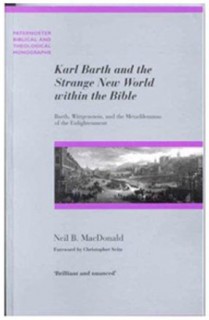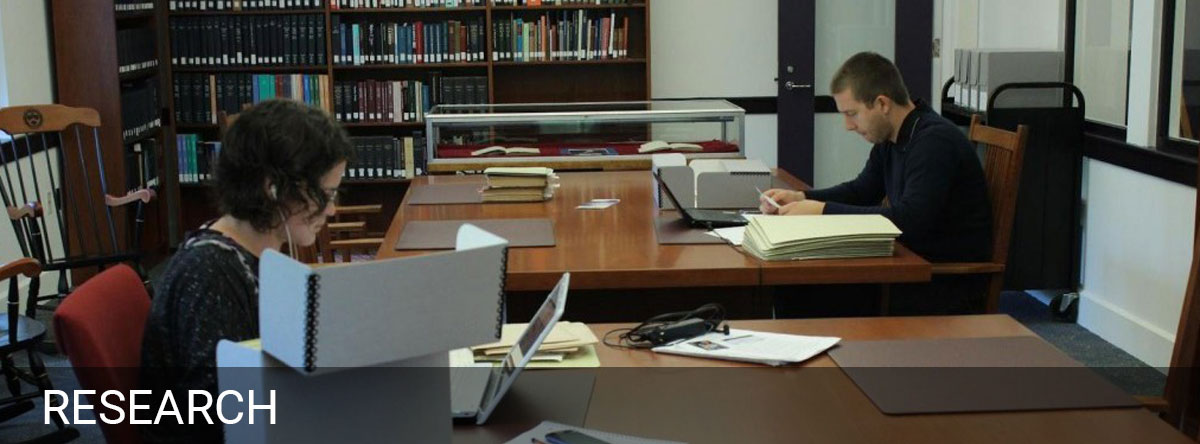 Neil B. MacDonald and Carl Trueman (eds.), Calvin, Barth, and Reformed Theology (Colorado Springs, CO: Paternoster Theological Monographs, 2008), xiii and 181. £19.99 (paperback)
Neil B. MacDonald and Carl Trueman (eds.), Calvin, Barth, and Reformed Theology (Colorado Springs, CO: Paternoster Theological Monographs, 2008), xiii and 181. £19.99 (paperback)
Reviewed by Jesse Couenhoven (November 13, 2009)
This collection of seven essays takes up John Calvin and Karl Barth’s views about the sacraments, the atonement, and the nature and function of Scripture. It will be of greatest interest to readers who are interested in thinking about Barth’s relation to traditional reformed theology, as most of the essays are written with that question in mind, and from the perspective of authors who favor reformed orthodoxy—but most of the essays also serve as capable introductions to Calvin or Barth’s thought on the topic they take up. As with any such collection, the essays vary in quality, and in their interests. Some essays compare and contrast the two theologians, while others focus on one. My own discussion of this text summarizes less than it concentrates on features I found salient in each of these essays.The book lacks a typical editor’s introduction, but the first essay, Carl Trueman’s “Calvin, Barth, and Reformed Theology: Historical Prolegomena,” is meant to fulfill something like that role by “setting the scene” (3). Trueman’s main purpose is to offer an historical overview of Barth’s relationship to the confessional reformed theology that preceded him. In the earlier sections of Trueman’s essay, his central argument appears to be that Barth “did not…grapple with primary texts as one might have expected an historian of dogma to do” (20). Rather, Barth’s understanding of 16th and 17th century Reformed (and Lutheran) theology was mediated through authors like Heppe and Schmid. Scholars sometimes take a thesis of this sort as an opportunity to suggest that the figures in question might have more room for rapprochement than is commonly thought, but Trueman moves in the opposite direction: Barth’s misunderstanding of classic Reformed orthodoxy results in a radical break, a theology that might look, formally, Reformed, but which materially lacks continuity with the Reformed tradition. The final pages of the essay focus on this latter point by criticizing Barth’s attitude towards doctrine and Scripture. However, Trueman presents little evidence that Barth misunderstood the (imprecisely evoked) Reformed traditions about which Trueman worries; moreover, he fails to explain how such misunderstandings are connected to Barth’s well-known disagreements with Reformed orthodoxy.
Trueman makes a number of theological judgments about Barth’s views without seriously engaging Barth’s main theological works. Happily, however, the tone, content, and approach of the three pairs of essays that make up the rest of this slender volume are markedly more theological and irenic than the introduction. The final pair of essays, Stephen Holmes’s “Calvin on Scripture” and Craig Bartholomew’s “Calvin, Barth, and Theological Interpretation” might serve as a more appropriate introduction to the other four essays in the book, since they emphasize the import and challenge of encountering Scripture for both Barth and Calvin—a topic central to the essays in this book, which stress the principle that Scripture is the norm of Christian doctrine.
Against the background of modern theology that is poor at Scriptural exegesis, and historical criticism that lacks an interest in theological interpretation, Bartholomew focuses his discussion on what Calvin and Barth have in common. His task is made easier by the fact that he illumines Barth’s views by attending as much to what Barth actually does with Scripture as what Barth says about Scripture. Bartholomew notes that, unlike most academics today, Calvin and Barth share the view that God speaks to us through his written Word. Barth seeks to make room for historical criticism but does not allow it—or anything else—the hermeneutical priority which the Word itself should have. Bartholomew also disputes claims that Barth’s hermeneutics are postmodern, given that the latter does believe in divine authorial intent. This move highlighted for me a way in which Bartholomew’s discussion lacks nuance: Calvin believes that the human authors of Scripture knew and intended to write of Christ, but Barth is not committed to that view, which makes his view of the literal meaning of Scripture more open to différance than Bartholomew suggests. Bartholomew is right to insist that Barth’s hermeneutics are closer to Calvin than Derrida, but the fact is that he develops concerns of both thinkers in intriguing ways.
Holmes suggests the Institutes are not properly read as a summary statement of Christian doctrine but as an introduction to and preparatory for Calvin’s commentaries (150). I fail to see why the Institutes should not be all of these things at once, but resonate with Holmes’s larger warning that we should be careful about projecting our concerns onto Calvin’s writings, as well as his desire to make reading Calvin’s commentaries more central to reading Calvin. Holmes argues that, for Calvin, the “one constant message running through…Scripture…is simply the person and work of Jesus Christ” (155). At the same time, texts are written in ways that accommodate human readers, which leads Homes to ask how we might know what in Scripture counts as accommodation (159). Holmes’s answer is that Calvin could address this problem with an adequate account of Christological accommodation, one that gives us confidence that God’s revelation is trustworthy, but he appears to have hesitations about whether Calvin can offer us such assistance (161-2). It is natural to wonder whether Barth might be instructive on this front, but that is a topic about which Holmes is silent.
Calvin and Barth’s struggle to hear Scripture aright is highlighted in the first pair of essays in the book, Trevor Hart’s “Calvin and Barth on the Lord’s Supper” and Anthony Cross’s “Baptism in the Theology of John Calvin and Karl Barth.” Both are able and instructive introductions to the topics their titles mention. Not much new ground is covered, but these essays are thoughtful and fair in their treatment of the ways in which Calvin and Barth’s reading of Scripture led them in different directions.
The paucity of Barth’s mature writing on the Lord’s Supper makes it necessary for Hart to reconstruct the main components of Barth’s mature views and arguments about the topic, a task he handles ably. The main question, he indicates, is whether this Supper is a place where God “is active in nourishing and deepening believers’ union with Christ, as well as believers being active in receiving Christ in faith and obedience” (55). His argument against Barth’s decision to support mainly the latter half of that claim is that John 6 can be read as a commentary on the Supper (56). Hart does not, however, give his reply to those who do not read the passage as he does; his attention is not focused on defending a view but on his capable explorations of divine presence in the Supper. I find Calvin’s view of how Christ is present in the Supper, and how that differs from divine presence elsewhere, vague—but that appears to be an intentional feature of the view (44).
In a similar vein, Cross’s essay systematically contrasts Calvin’s sacramentalism with Barth’s anti-sacramentalism. Cross concludes that Barth’s distinction between water baptism and baptism by the spirit lacks an adequate biblical basis (80f). This is a point he asserts more than argues for; those who want Scriptural arguments will have to follow his footnotes. Cross helpfully distinguishes arguments about Spirit baptism from arguments about infant baptism, and one interesting moment in his essay is his brief mention of the fact that although Barth “disassembles the argument for it” and calls for reform, he “nowhere contests or rejects the validity of infant baptism” (79). Cross holds up that position as a model for Baptists (87), and I wish he had explored the implications of that idea further.
A final pair of essays cover Barth and Calvin’s doctrines of atonement, a topic where they have more in common than that of sacramental theology. Neil MacDonald’s “Barth’s Narrative Doctrine of Substitutionary Atonement” is the most original in the book. In brief, his argument is that Barth’s prioritization of the synoptic Gospels over John’s Gospel makes possible Barth’s greater emphasis on the role of YHWH in the passion narrative (98-9). He reads that narrative with a judicial framework, in which the judgment on Jesus is not merely Pilate’s but also the Father’s—an idea MacDonald suggests Barth got from Calvin (105f). This judgment is expressed not only in Jesus’ death but in his resurrection, which expresses that YHWH associates his own soteriological identity with Jesus (104), and which asserts that the eschatological judgment Jesus proclaimed in his earthly ministry has begun to be fulfilled in Jesus himself, partly because Jesus becomes the object of that judgment (108f). MacDonald emphasizes similarities between Barth and Calvin’s views, which makes more significant his reticence about the relationship between Barth’s doctrine of election and the topics he discusses. MacDonald also defends Barth’s position as preferable to Calvin’s because it is more rational by historical and philosophical standards (117), but such claims require a good deal more development: what “rational” means is, after all, a hotly disputed question.
Myron Penner’s “Calvin, Barth, and the Subject of Atonement” makes central the questions about election just mentioned, and is an excellent supplement to MacDonald’s essay, in addition to being a fine summary of central aspects of Calvin’s doctrine of atonement. For Barth, God first and primarily elects not individual human beings but Jesus Christ, and in him all of humanity, both to be reprobate and to be redeemed. Calvin, by contrast, defends the “particularist” view that individual human beings are elected either to redemption or reprobation. This difference in their theologies of atonement is linked to their Christologies: Barth tends to see Jesus as something like a Platonic form of humanity, whereas Calvin’s classical doctrine of the two natures insists that it is not human nature as such that is unified with the Word in Christ but a particular and individual human nature (140). Both locate Christ’s atoning work in “the whole course of Christ’s obedience” as prophet, priest, and king (127), but while Penner appreciates the richness of Barth’s view, he prefers Calvin’s development of this theory of atonement because he does not understand how the Holy Spirit plays a role in Barth’s theory, how anyone is reprobate on Barth’s view, or how Barth’s Christology speaks of a Christ who is really “like us” (144). These are good questions, but a sympathetic reading of Barth suggests that his answers have significant parallels with Calvin’s; for instance, Barth’s discussion of the “impossible possibility” is an attempt to be faithful to the mystery of the idea of reprobation (143), and he agrees with Calvin that the atonement is made real in our lives by the action of the Holy Spirit (134).
Altogether, this is a strong collection of essays. Many of them would be appropriate supplements in introductory or more advanced classes on Calvin, Barth, or both. Disagreements between the authors are evident, but that is a strength of the collection: many of Barth and Calvin’s differences are put on display, as well as their substantial agreements, and the reader is able to appreciate why one might prefer the views of one of these great theologians, or the other—and can also see how fruitful it can be to seek understanding along with both of them.
The views expressed here are strictly those of the author; they do not necessarily represent the views of the Center for Barth Studies or Princeton Theological Seminary.


